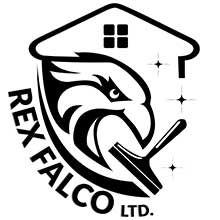Work in Malta | Employment in Malta for Non-EU
Malta is an island nation in Southern Europe, 80 kilometers south of Italy. With a population of 533,286 people and a land area of just 316 km2, it is one of the smallest EU nations.
The picturesque island of Gozo, the medieval hilltop town of Mdina, palaces and castles, historic ruins, cliffs, bays, and beaches all contribute to Malta’s appeal as a travel destination.
In 2007, three years after joining the European Union in 2004, Malta eliminated its borders with the other Schengen nations. Since that time, visitors with a Schengen visa have been permitted entry into Malta.
Malta, an island republic, enables all citizens of the EU to enter its borders with simply a valid form of identification.
People are interested in living in Malta for a variety of reasons. The country’s laidback lifestyle and permanent summer atmosphere make it an appealing option for relocation. Additionally, the booming economy makes finding a job easier than ever. Although the country is small, its GDP grew by an average of 2.9% from 2001-2016, outperforming the growth in the EU bloc, despite a global downturn during that period.
Incentives such as the tax structure, low-cost labor, strategic location, and having English as an official language have attracted investment from large, international companies as well as fostering the development of local businesses. As a result, there are plenty of jobs around, especially for people with specialist skills. For people looking for an escape from the economic challenges of some other EU states, Malta is a good option as it has very low unemployment (5% in 2016).
With Malta now being one of the choicest countries of skilled worker individuals for migration from overseas, the following things need to be kept in mind for all non-EU visitors, whether arriving in Malta by air or water, must produce additional documentation. At the Maltese port of entry, non-EU visitors must present the following documentation:
- a valid passport or other travel authorization. issued during the last ten years, valid for at least three more months beyond your anticipated date of exit from Schengen.
- a visa, if you are required to have one by the Maltese government.
- Health Insurance for Travel. providing a minimum of €30,000 in coverage for medical emergencies in Malta and the entire Schengen region.
The best way to get a job in Malta may vary depending on the individual’s skills and qualifications. However, some tips on how to get a job in Malta include researching the local job market, networking with professionals in the desired field, and applying for jobs online.
In Malta, businesses are often in need of skilled staff, such as (Diesel Mechanic, Delivery Driver, Chef), due to the low unemployment rate (around 5% in 2016). The local government has also released the Key Employee Initiative which allows certain non-EU nationals to get a work permit within 5 working days of submitting an application. If you have these skills, you are unlikely to be unemployed for long. Learn more about the sectors in demand.
Are you willing to come and work in Malta? Apply now in our job section and we are looking forward to receiving your application.







